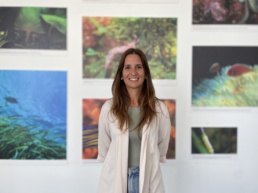If there is one thing that the pandemic has made evident, it’s the central role that science and scientists play in our lives. This week, we talked to Maria do Carmo Fonseca, a scientist who has dedicated her career to the decoding of genetic information in human cells, for a better understanding of diseases caused by errors of nature and the famous RNA that allowed the development of the first COVID-19 vaccine.
She was the first female scientist to receive the Pessoa award in 2010, the first Portuguese woman to take the leadership of the RNA Society, recipient of numerous awards for her scientific work, Maria do Carmo Fonseca is one of the most renowned Portuguese scientists.
In conversation with journalist Filipe Santos Costa, the President of the Instituto de Medicina Molecular and Full Professor at the Faculdade de Medicina of ULisboa, talks about the acronym of the moment, RNA, which allowed the development of the first COVID-19 vaccine, about science in Portugal, her experience in the United States, and the ethical discussion that will follow due to the progress of scientific development.
“The idea of making RNA vaccines comes from a few years ago, not for infectious diseases, but for cancer. The discoveries that we ourselves are making in order to reverse aging (…) are also mediated by RNA molecules.” – Maria do Carmo Fonseca
About the United States, Maria do Carmo Fonseca recalls the central role that the country played in creating the culture and the creativity that allowed scientific progress, to the point of becoming absolutely essential in the career of any renowned scientist.
“No doubt that the US was a pioneer in creating this culture that facilitates scientific creativity. The scientific process is a very creative process, because to discover something new we cannot be too focused on what we are looking for. (…) This ability to overcome this fear of risk was undoubtedly what marked the US during the 20th century, and in such a way that no European scientist and even Asian scientist, no scientist could have a great career of success, worldwide, if he/she hadn’t experienced a period of training in the US.” – Maria do Carmo Fonseca
As for Portugal, the scientist is clear. For years the country was part of the brain-drain phenomena because it did not have the resources to maintain its valuable professionals, especially institutions of excellence to pursue their careers. But that phase has passed, and now it’s time to try to attract foreign scientists.
“We went through the phase where there was an exodus of our brilliant minds abroad because there were no top research institutes in Portugal and we spent many years recovering the Portuguese researchers back to Portugal. We are reaching a stage where we already have institutes of excellence, and now we should start attracting to Portugal other brilliant minds from other countries, where these institutes of excellence do not exist.” – Maria do Carmo Fonseca
This episode is already available on the platforms where you usually listen to your podcasts. You can also find this episode in the links below.
Related Posts
17 de February, 2025
Launch of the FLAD Rui Machete Award: 200 thousand euros to distinguish paths of excellence in the Portugal-USA relationship
The Award, worth 200 thousand euros,…
14 de January, 2025
New R&D@USA Scholarship Holders 1st semester 2025
FLAD has already selected candidates…
13 de December, 2024
Vânia Baptista, from the University of Algarve, wins FLAD Science Award Atlantic 2024
The project 'Finding Home – Discovering…


